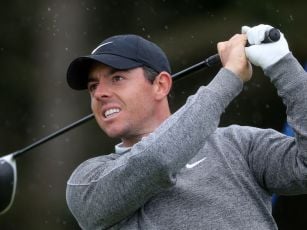Paula Radcliffe has criticised proposed changes that could see her world record in the marathon wiped out, saying they would hurt her reputation.
European Athletics announced on Monday that world records set pre-2005, before the IAAF routinely stored blood and urine samples, would be erased under the proposal recommended by one of the body's project teams.
The proposals will now be forwarded to the sport's world governing body for further consideration.
European Athletics' taskforce chairman Pierce O'Callaghan said he accepted some record-breakers would be "collateral damage" under the measures.
He also said he apologised to innocent athletes worried their records will be struck off.
Radcliffe set her marathon record in London in 2003 and she would be one of the British athletes to lose a world mark along with Jonathan Edwards, who set his triple jump mark of 18.29m in 1995.
Talking to Sky News, Radcliffe described setting her marathon world record as "one of the moments that I really treasure, along with the more important ones like getting married and having my kids".
While she said the governing body "can't ever take away my personal best, those records and what I stand for" she admitted "there is a part of you that is hurt by it definitely.
Because it feels like we're being thrown in the bin almost, with the records of people who are heavily suspected of cheating, just because we're in that time-frame and it feels like I'm being let down again by the governing bodies of our sport."
Radcliffe also told Sky Sports: "Records are there to be broken, I mean we expect them to be broken. We just don't expect them to be taken away. We expect someone else to come along and try and beat them and that's what we as athletes are always striving to do.
"I think frustration really [initial reaction], because while I fully understand what European Athletics are trying to do and how they are trying to restore the credibility and belief in the sport, I just don't feel that this is the right way.
"I do feel that it's disrespectful to those athletes whose marks are iconic in history.
"I mean I remember being there in Gothenburg, in the stadium, watching Jonathan Edwards take those jumps and watching him compete all of that year. A huge inspiration.
"To, in some ways, say that that doesn't count because he didn't comply with the criteria that's coming into play now, even though if you actually look at it, he probably did more pre-competition tests then and since and his samples were probably tested later as well, than some people do in some countries now, because we're still campaigning to get equality there in the testing across the board.
"The transparency and quality of the testing as well, and until we reach that point where we can fully guarantee that every person trying to cheat out there is being caught, then I don't think we can make a move like this and I think it's unfair to make those clean athletes suffer again at the hands of cheats.
"During our careers we've had to compete against people that we've heavily suspected or known were cheating. We've lost out probably on moments, medals, career earnings as well, all of those times we've lost out and now to lose out again just because of the actions of people who chose to cheat, who've already damaged our sport and now they're damaging it again."

Mary Keitany broke Paula Radcliffe's women-only marathon world record on Sunday with a third victory in London. Image: AP Photo/Tim Ireland
Colin Jackson has also criticised the plans, which could strip him of his 1994 indoor 60m hurdles record of 7.30 seconds.
He said: "People have come close to it but not close enough and now it looks like it'll be lifted off by a delete button on a laptop."
The proposal was described as "radical" by European Athletics president Svein Arne Hansen and received backing from IAAF president Lord Coe.
"I like this because it underlines that we (the governing bodies) have put into place doping control systems and technology that are more robust and safer than 15 or even 10 years ago," Lord Coe said.
"Of course, for this to be adopted for world records by the IAAF it needs global approval from all area associations.
"There will be athletes, current record holders, who will feel that the history we are recalibrating will take something away from them.
"But I think this is a step in the right direction and if organised and structured properly we have a good chance of winning back credibility in this area."
Mr O'Callaghan told Sky News: "We've got to look at the bigger picture of the sport".
He said "that in 104 years of world athletics the IAAF have never faced the problems they have faced off the field of play and in the board rooms" and that "Sebastian Coe should be applauded for the work he has done to bring reform".
He went on to say the recalibrating of the records "shouldn't be looked upon as a punishment for Paula Radcliffe, she ran those races and the whole sport will always respect her for it, but the IAAF and European Athletics have to take desperate measures to regain the public trust."
The World Athletics Championships will be held in the former Olympic Stadium in Stratford, London in August.
Download the brand new OffTheBall App in the Play Store & App Store right now! We've got you covered!
Subscribe to OffTheBall's YouTube channel for more videos, like us on Facebook or follow us on Twitter for the latest sporting news and content.








